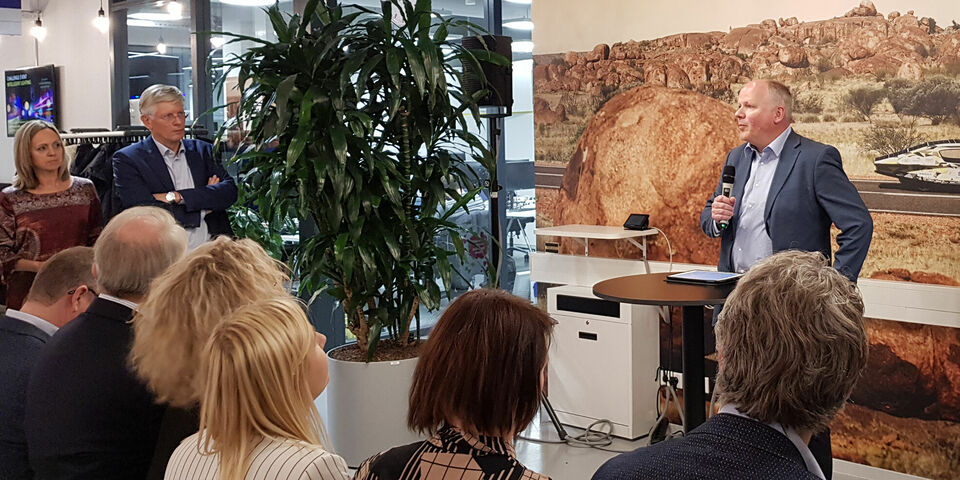TU/e lavished with praise by NVAO committee
The NVAO committee chaired by professor Ramses Wessel, which visited TU/e for the second time within the context of the Institutional Audit Quality Assurance (ITK) during the last three days, was full of praise for TU/e at the presentation of its preliminary findings yesterday. “A very professional and pleasant organization,” according to chairman Wessel, who said that the committee members were carried along at times by the enthusiasm of the employees and students they talked to.
Ramses Wessel, professor at the University of Twente and chair of the NVAO committee, started his presentation in innovation Space with a disclaimer. A remark with which he probably referred to minister Ingrid van Engelshoven’s decision two weeks ago to brush aside another NVAO committee’s negative advice about the ITK at TU Delft. The members of TU/e’s Executive Board can take that disclaimer for what it’s worth, given the lavish praise the chairman heaped upon his audience.
TU/e passed the second ITK in its history with flying colors, and the members of the Executive Board were visibly glowing with pride as Wessel handed out one compliment after another. Wessel: “The vision for the coming years is formulated clearly, has wide support within the entire community, and is clearly recognizable within the individual departments as well. The establishment of the Bachelor College and the Graduate School were of great importance to the university. Many people are familiar already with the new educational approach challenge-based learning, although it’s not quite clear to everyone what it will entail, but that’s exactly what’s so attractive about it.” Another strong point he cited was the sense of community each committee member experienced.
Croquette lunch
Policy is concrete and finds its way to the entire organization through a closely-knit network, Wessel said, “and it is characterized by a pragmatic approach and a can-do mentality. People address issues together and the board isn’t afraid to make serious decisions, such as the introduction of a ceiling on student intake for a number of programs in order to guarantee the quality of education.”
The committee chairman from Twente did not fail to mention the work pressure that he and the other members of the committee saw increasing at TU/e, but he also found that this has not led to extra dropout rates.
There’s also nothing wrong with monitoring and evaluating policy, according to Wessel. “That’s a continuous process at TU/e in which there is attention to best practices as well, and people seem to be well informed about what’s going on, without having to base themselves on an extensive evaluation report.”
Issues that could be improved are also acted upon swiftly, according to the committee, and Wessel mentioned adjusting the USE Learning Trajectory as an example. “In this area too, we feel a broad commitment throughout the entire community, a bottom-up approach with the so-called ‘croquette lunch’ as the most striking example.”
Quality agreements
The committee also expressly focused on quality agreements that were made in order to improve the quality of education, as well as on the projects that need to contribute to this, and their financial accountability. For this, too, Wessel had nothing but praise: “The plans are perfectly in line with the existing vision, and the employee representative body is constantly involved in the decision-making process, which is why the plans enjoy widespread support.”
The committee’s conclusion of the actual plans is that they are “concrete and feasible” and that the monitoring of these plans functions properly. “Clear budgeting, a clear monitoring process and good links between the individual projects that are running at the university. They are lastingly integrated in the existing processes.”
The final conclusion, therefore, was extremely positive. Wessel: “We’ve come to know TU/e as a very professional organization, but also as a very pleasant one. The joy and enthusiasm really rubbed off on the members of the committee. I congratulate all those involved and the entire organization on this.”
Rector Frank Baaijens expressed his gratitude for the work of the committee members, and said to be delighted that they experienced in a few days what he and the other members of the Executive Board experience on a daily basis. “With this result, we can move forward with our vision for 2030.” In conclusion, he thanked everyone present at the final presentation, and all those who had contributed to the preparations.


Discussion